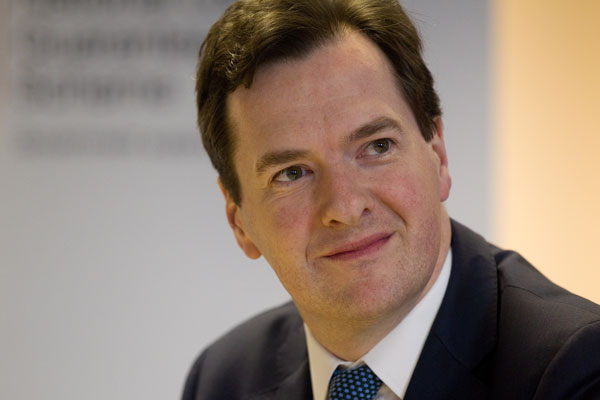Can George Osborne recover? Much depends on how the Chancellor confronts the twin crises he faces: the lack of economic growth (or any prospect of it) and his personal reputation for competence after his shambolic Budget. Today, we have alarming news. The Independent says that Osborne is offering ‘growth bonds’. These appear to be a debt concealment trick that even Gordon Brown didn’t think of. The Chancellor is looking at British savings accounts with envious eyes, it seems, and plans to ask people to lend money to his government if it promises to spend more on infrastructure. This makes little sense: right now, due to the bond bubble and QE, the British government is able to borrow at rock-bottom rates, as Osborne never tires of reminding us. Borrowing from the public would cost a lot more, so why do it? The reason seems to be that the Treasury thinks this type of borrowing would not show up on the national debt accounts, like PFI. So this is an accounting fiddle. If Osborne thinks that too little is being spent on infrastructure, he should assign more public spending to it and reverse his plan (or, should I say, the plan he copied from Alistair Darling) for dramatic cuts in state infrastructure spending while protecting politically sensitive (and headline-grabbing) day-to-day spending.
But, more alarming, is the idea of ‘growth bonds’. The name suggests that Osborne thinks this is the way to get economic growth: debt-financed infrastructure spending. Even in America, Obama’s plan to borrow for ‘shovel-ready’ projects has had poor results in stimulating growth or tackling unemployment. In Britain, such projects often serve merely to suck in even more overseas labour. Building the Olympic complex was supposed to tackle local unemployment in a deprived area of London, but it did no such thing. The Olympic site became Britain’s capital of overseas worker registrations. Billions were spent, but local unemployment was unchanged. Multiply this across Britain and it’s broadly what an infrastructure stimulus would achieve. Osborne seems curiously reluctant to embrace the supply-side reforms that are so urgently needed. Such reforms take a couple of years to yield benefits, so time is running out.
If the Independent is right, then Osborne’s ‘growth bonds’ would be a Keynesian stimulus financed by Brownite debt concealment. This is a poor substitute for what should be a Conservative route to growth.
PS: The Treasury denies the story, which is described by a source as ‘bollocks’. While I’m prepared to believe that, the overall story does fit a trend. Osborne’s general analysis is that Britain’s problem is a lack of debt: or, that the companies who need borrowing are not getting it. Hence the ‘credit easing’ or government-backed, sub-prime corporate debt. David Cameron said only last month that he’d consider using state guarantees ‘to boost credit for business, housing and infrastructure’. As Philip Aldrick of The Telegraph reported at the time, ‘The Government is desperately seeking &”cost-free” ways of lifting growth that do not threaten the deficit and debt reduction plan, and believes guarantees are the most effective strategy.’ But Osborne has, so far, positioned himself as holding a Santa’s sack of cheap debt — sharing this magic gold with companies, homebuilders etc. ‘Growth bonds’ would mean that the government borrowed from the people, and I’m prepared to believe HMT’s insistence that this is not on the cards.






Comments